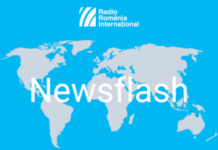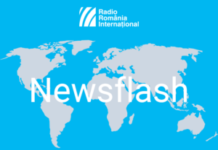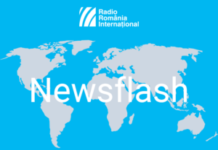It’s been six months since Russia invaded Ukraine, and the representatives of tens of states and international organisations promise to further support Ukraine.
Ukraine marks the 31st anniversary of the proclamation of independence from the Soviet Union, six months after it became the target of a large-scale attack from Russia. The proclamation of Ukraine’s independence was a key moment in the process that led to the collapse of the Soviet Union, a collapse which the Russian leader Vladimir Putin later described as the greatest geopolitical disaster of the 20th century.
For Ukraine, there began a sinuous path to national identity and democracy. The decisive moment came in 2013, when, following pressure from Moscow, Ukraine’s president Viktor Yanukovych refused to sign the country’s association agreement with the European Union, which sparked a protest movement that resulted in a change of government and the coming to power of the pro-Europeans. Russia’s reaction was brutal, invading and annexing Crimea and backing a separatist conflict in the east of Ukraine.
As Ukraine continued to come closer to the West, Moscow invaded again, this time under the pretext of denazification, thus starting the biggest war in Europe since WWII. The Russian forces attacked on three fronts; from the east, from Crimea and from Belarus. In the first six months of conflict, Russia suffered significant losses in the Kiev region and in Kharkiv, but occupied the most part of Donbas and part of southern Ukraine. It relied considerably on constant shelling of Ukrainian towns and cities, some of which have been largely destroyed, and on war crimes. The West mobilised in support of Ukraine, sending weapons to the latter and imposing sanctions against Russia.
For the time being, however, there appears to be no end in sight for the conflict. NATO’s secretary general Jens Stoltenberg and many western leaders meeting in a virtual summit on Tuesday to discuss returning Crimea to Ukraine promised to support Ukraine in the long term. In his address at the summit, the Romanian prime minister Nicolae Ciuca said the democratic countries must remain firmly united in supporting Ukraine’s independence, sovereignty and territorial integrity within its internationally recognised borders. He recalled Romania’s support for Ukraine, at a political, economic, financial and humanitarian level, as well as with respect to diplomacy and international relations.
Ukraine has suffered six terrible months of war, but has shown an incredible ability to resist brutal aggression and strike back and retake territory, said NATO secretary general Jens Stoltenberg. He added that the alliance fully supports Ukraine’s sovereignty and territorial integrity and its right to self-defence.
The European Union will also stand by Ukraine as long as it is necessary, said the European Commission president Ursula von der Leyen. She said the Union will never recognise the illegal annexation of Crimea and Sevastopol by Russia and that it is working together with Ukraine to reveal Russia’s human rights violations in order to hold those responsible to account and to help the victims. (Miha Pelin, Radio Romania international)











